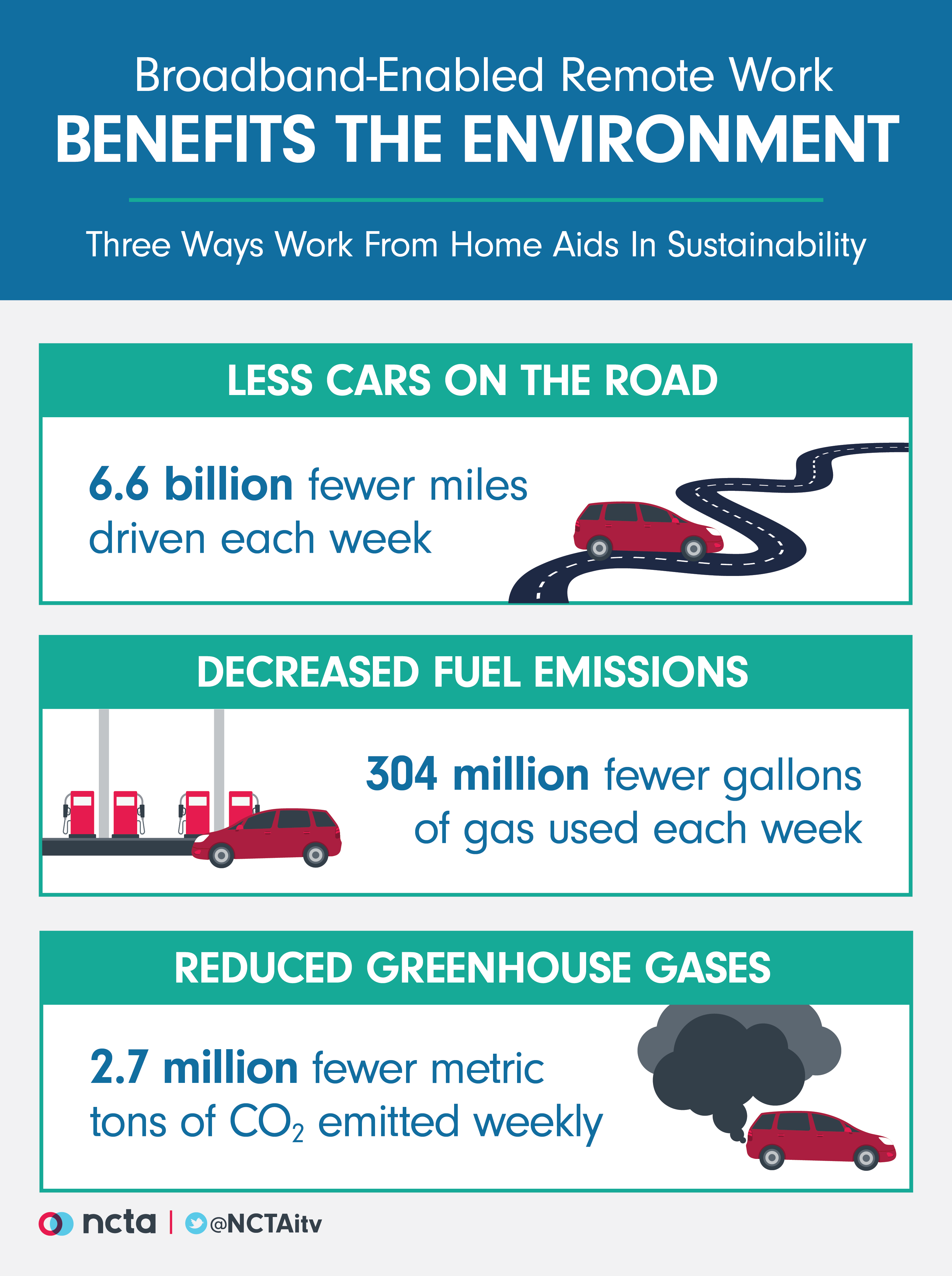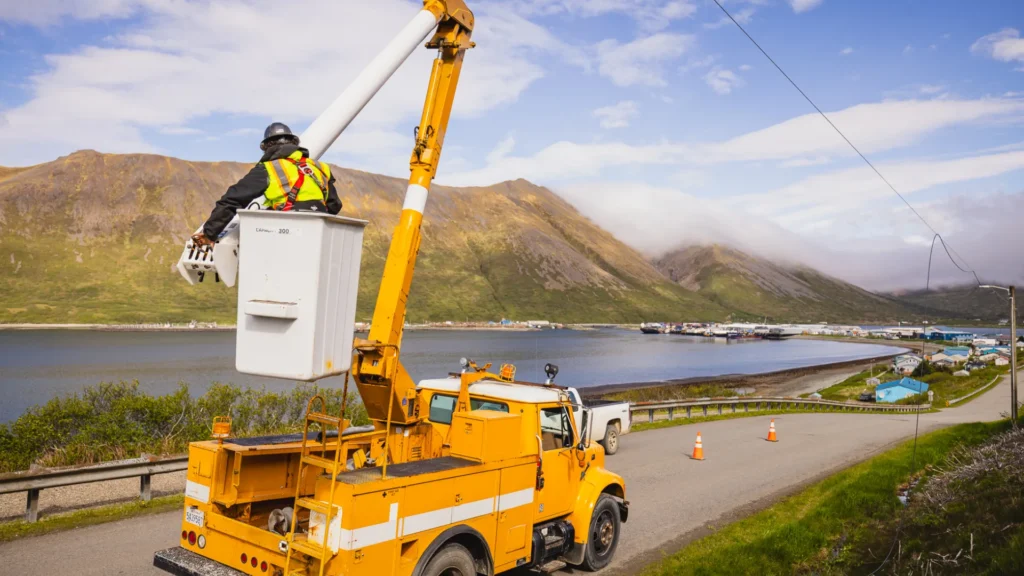The COVID pandemic, as devastating as it has been over the past 2.5 years, has undoubtedly accelerated the critical need for high-speed internet connectivity and forever transformed the way people live, work, learn, and play. One major shift that has transpired is the surge in remote work, which is documented in surveys by the Census Bureau. In addition to the improvement in work-life balance that many people reported with this rise, a new NCTA analysis highlights significant environmental benefits that working from home delivers.
The bottom line: with high-speed broadband making remote work successful (as evidenced during the first 18 months of the pandemic), less vehicles are on the roads, leading both to tremendous savings in gasoline purchased and significant reduction in CO2 emissions.
NCTA examined Census Bureau data that was gathered from the end of July to early August. The data shows that about half of the American workforce was doing at least some work from home, which translates into a savings of about 304 million gallons of gasoline a week because of a reduction in commuting. That is about 12% of the average amount of gas consumed in a typical week pre-COVID. Furthermore, more people working from home essentially results in a reduction of 6.6 billion miles being driven each week.
Additionally, during the same time period, information from the Environmental Protection Agency (EPA) shows a reduction in gasoline consumption of this magnitude translates into a cut in CO2 emissions of about 2.7 million metric tons per week. Over a full year, if this behavior stayed the same, that would translate into a reduction of nearly 141 million metric tons of CO2, which is equivalent to taking more than 30 million cars off the road for one year.

These scenarios and estimates assume a constant amount of remote work in America, a circumstance that is permanent for more employees than ever before but also likely to continue evolving as some people are back in the office full time and some are following a hybrid model.
But even if only 25% of the workforce were to work remotely two days a week, the benefits are clear: this type of work situation would reduce CO2 emissions by about 29 million metric tons per year, which is the equivalent to taking about 6.2 million cars off the road. Month after month, these environmental savings are both significant and encouraging.
High-speed broadband provides invaluable benefits to society, including greater economic output, increased connection among people, and unlimited opportunities. And by allowing employees to work from home and reduce their carbon footprint, it is delivering a positive environmental impact and showing the possibilities of an even greener future.









